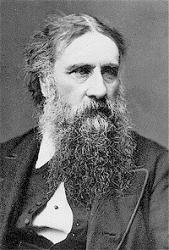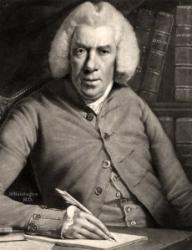Planning worship?
Check out our sister site, ZeteoSearch.org,
for 20+ additional resources related to your search.
- |
User Links
Person Results
‹ Return to hymnal



Export as CSV
Henry Carey

1687 - 1743 Person Name: Henry Carey, c. 1687-1743 Hymnal Number: 16 Composer of "SURREY (CAREY'S)" in The Church Hymnary (3rd Ed.) Henry Carey, b. 1685 (?); d. London, 1743
Evangelical Lutheran Hymnal, 1908
Henry Carey
George Macdonald

1824 - 1905 Person Name: George MacDonald, 1824-1905 Hymnal Number: 48 Author of "O Lord of life, thy quickening voice" in The Church Hymnary (3rd Ed.) Macdonald, George, LL.D., was born at Huntly, Aberdeenshire, Dec. 10, 1824, and educated at King's College, Aberdeen, where he graduated M.A., and from which he afterwards received the honorary degree of LL.D. For a brief time he studied for the Congregational ministry at Highbury College, London, and then became the Minister of the Congregational Church at Arundel, Sussex (1850-53). He afterwards preached for a short time to a small company at Manchester and Bolton. Relinquishing the ministry, he became Lecturer on English Literature at King's College, London, and ultimately gave himself up entirely to literary work. Dr. Macdonald has acquired a great reputation by means of his works of fiction, most of which were originally contributed to magazines, and the most notable of which are David Elginbrod; Robert Falconer; Alec Forbes of Howglen; and Annals of a Quiet Neighbourhood. He was some time Editor of Good Words for the Young, and wrote England's Antiphon for Macmillan's Sunday Library. His poetical works are:—
(1) Within and Without, 1855; (2) The Disciple, and Other Poems, 1860; (3) The Diary of an Old Soul (printed for private circulation), 1867"; (4) Exotics, a volume of translations from the German (most of which first appeared in the Sunday Magazine), 1876; and (5) A Threefold Cord, 1883, part of which previously appeared in his Works of Fancy and Imagination, 10 vols., 1871.
Most of his original hymns were contributed to Hymns and Sacred Songs for Sunday Schools and Social Worship, &c, published by Fletcher and Tubbs, Manchester, in 1855 (2nd. edition, 1856), and of which his brother, and the Rev. G. B. Bubier were the editors. The original hymns, which are signed "G. Macdonald," in this collection are:—
1. A quiet heart, submissive, meek. The Meek inherit the Earth.
2. Daylight fades away. Second Advent.
3. Father, I well may praise Thy name. Sunday Morning.
4. Father, these souls of ours have been. Blessed are the Pure in Heart.
5. If we were longing for the food. Blessed are they that Hunger and Thirst after Righteousness.
6. It was an awful hour that gave. Blessed are the Merciful.
7. Let Thy own voice, 0 Father, say. Blessed are they that mourn.
8. 0 Son of Man, Thy Name by choice. Blessed are the Meek.
9. Our Father, hear our longing prayer. Blessed are the Poor in Spirit.
Some of these hymns were afterwards revised by their author. The next two are from The Disciple, and Other Poems, 1860 :—
10. O God, Whose daylight leadeth down. Evening.
11. O Lord [God] of life, Thy quickening voice. Morning.
Dr. Macdonald's hymns are rich in ideas, but are touched with a mysticism which renders them a little difficult of apprehension. They are however of great value in setting forth truths rarely expressed in hymns, and are likely to grow in favour. [Rev. W. Garrett Horder]
-- John Julian, Dictionary of Hymnology (1907)
=======================
http://en.wikipedia.org/wiki/George_MacDonald
George Macdonald
Henry Lahee
1826 - 1912 Person Name: Henry Lahee, 1826-1912 Hymnal Number: 48 Composer of "NATIVITY" in The Church Hymnary (3rd Ed.) Born: April 11, 1826, Chelsea, London, England.
Died: April 29, 1912, London, England.
Lahee studied under John Goss and William Sterndale Bennett. He played the organ at several churches, including Holy Trinity Church, Brompton (1847-74). He won prizes for his compositions in Bristol, Manchester, Glasgow, and London, and set to music poems by Edgar Allen Poe ("The Bells"), Henry Wadsworth Longfellow ("Building of the Ship") and Alfred Tennyson ("Sleeping Beauty"). His works include:
Metrical Psalter, with William Irons, 1855
Famous Singers of Today and Yesterday, 1898
One Hundred Hymn Tunes
Sources:
Frost, p. 680
CS Concordance, pp. 246-47
Nutter, p. 460
--www.hymntime.com/tch
Henry Lahee
Thomas O. Summers
1812 - 1882 Person Name: Thomas Osmond Summers, 1812-82 Hymnal Number: 49 Author of "The morning bright, with rosy light" in The Church Hymnary (3rd Ed.) Summers, Thomas Osmond, D.D., LL.D., son of James Summers, was born near Corfe Castle, Dorsetshire, England, Oct. 11, 1812. Proceeding to the United States in after years, he was admitted to the Baltimore Conference in 1835. From 1840 to 1843 he was a missionary in Texas; removing to Tuscaloosa, Alabama, 1844, and Charleston, South Carolina, 1846. From 1845 he acted as Secretary of the Conference of the Methodist Episcopal Church, South, and was also Book Editor. Subsequently he was Professor of Theology and Pastor of Vanderbilt University. He was Chairman of the Hymn Book Committee of the Methodist Episcopal Church, and edited the Songs of Zion, 1851, and the Wesleyan Psalter, 1855. He died in May 1882. Dr. Summers is the author of several original works, and of the following hymns:—
1. The morning bright, With rosy light. Morning.
2. The daylight fades, The evening shades. Evening.
Concerning these Morning and Evening hymns Dr. Summers says:—
”My first child was born in January, 1845. When she was about a year old, as I was descending the Tombigbee River in a little steamer, I wrote a morning Hymn for her on the back of a letter, transcribed it when I reached Mobile, and sent it to her at Tuscaloosa. That was the origin of ‘The morning bright.' When editing the Southern Christian Advocate, I put it without name in the Child's Department. It was copied into the religious papers generally, and into books. My second child was born in 1847, and for her I wrote ‘The daylight fades,' as far as I can recollect, about 1849. . . . Both of these children for whom they were written are now singing hallelujahs with the angels." (Stevenson's Hymns for Church & Home, Biog. Index, 1873.)
These hymns have attained to great popularity as children's hymns, and are found in numerous collections both at home and in Great Britain. The 3rd line of stanza i. of the Morning Hymn should read: "Has waked me up from sleep," and not as found in many collections. [Rev. F. M. Bird, M.A.]
-- John Julian, Dictionary of Hymnology (1907)
Thomas O. Summers
Henry Harington

1727 - 1816 Person Name: Henry Harington, 1727-1816 Hymnal Number: 4 Composer of "HARINGTON (RETIREMENT)" in The Church Hymnary (3rd Ed.) Born: September 29, 1727, Kelston, Somerset, England.
Died: January 15, 1816, Bath, Somerset, England.
Buried: Kelston, Somerset, England.
Harington, a physician, was mayor of Bath, England, in 1793, and founded the Harmonic Society there.
"A tablet was erected to his memory in Bath Abbey, on which is a curious mathematical figure highly suggestive of a proposition in Euclid, but which is really a design showing the ratios of the vibration numbers in the various intervals of the major scale."
Lightwood, p. 358
--www.hymntime.com/tch
Henry Harington
Christopher Tye
1497 - 1572 Person Name: Christopher Tye, c. 1508-72 Hymnal Number: 22 Composer of "SOUTHWARK" in The Church Hymnary (3rd Ed.) Tye, Christopher, MUS. D., born at Westminster in the reign of Henry VIII. He was celebrated as a musician, and was granted the degree of MUS. D. at Cambridge in 1545. He was musical tutor to King Edward VI., and organist of the Chapel Royal under Queen Elizabeth. Besides composing numerous anthems, he rendered the first fourteen chapters of the Acts of the Apostles into metre, which were set to music by him and sung in Edward 6th's Chapel, and published in 1553. He died circa 1580.
-- John Julian, Dictionary of Hymnology (1907)
Christopher Tye
W. Pennefather
1816 - 1873 Person Name: William Pennefather, 1816-73 Hymnal Number: 11 Author of "Jesus, stand among us" in The Church Hymnary (3rd Ed.) Pennefather, William, B.A., son of Richard Pennefather, Baron of the Irish Court of Exchequer, was born in Merrion Square, Dublin, Feb. 5, 1816. He resided for a time for educational purposes at Wesbury College, near Bristol, and then at Levans Parsonage, near Kendal, Westmoreland. He entered Trinity College, Dublin, in Feb. 1832, and graduated B.A. in 1840. Taking Holy Orders in 1841, he became curate of Ballymacugh, diocese of Kilmore. In July, 1844, he was preferred to the Vicarage of Mellifont, near Drogheda. In 1848 he removed to England, where he held successively the Incumbency of Trinity Church, Walton, Aylesbury, 1848; of Christ Church, Barnet, 1852; and of St. Jude's, Mildmay Park, 1864. He died April 30, 1873. His great work at Barnet and at Mildmay—-the Conferences began at the former and continued at the latter place-—the large religious and charitable organizations which he instituted and superintended, are matters of history. Full details are given of the rise and progress of these and his other works in his Life and Letters, 1878. His hymns were written mainly for the Barnet and Mildmay "Conferences," and were published sometimes as leaflets, and again, as for the Conference of 1872, as Hymns Original and Selected, By W. P. In this pamphlet there are 25 of his compositions. In the latter part of 1873 his Original Hymns and Thoughts in Verse were published posthumously. This work contains 71 pieces, but few of which are dated. Of these the following are given in a few hymn-books:—
1. And may I really tread. Divine Worship.
2. Help us, 0 Lord, to praise! Praise.
3. How shall we praise Thy name. Christian Communion. From this “0 for ten thousand harps," is taken.
4. Jesus, in Thy blest name. Church Conferences.
5. Jesus, stand among us. Divine Worship.
6. My blessed Jesus, Thou hast taught. Self Consecration.
7. 0 God of glorious majesty. For Retreats or Quiet Days.
8. 0 haste Thy coming kingdom. The Second Advent desired.
9. 0 holy, holy Father. Divine Worship.
10. 0 Lord, with one accord. Divine Worship.
11. 0 Saviour! we adore Thee. Jesus the Faithful One.
12. Once more with chastened joy. Divine Worship.
13. Praise God, ye seraphs bright. Praise.
14. Thousands and thousands stand. Communion of Saints.
15. Yon shining shore is nearer. Heaven Anticipated. Mr. Pennefather's hymns possess much beauty and earnest simplicity; are rich in evangelical sentiment and doctrine; and are much more musical than is usual with lyrics of their class
-- John Julian, Dictionary of Hymnology (1907)
W. Pennefather
John Hilton
1599 - 1657 Person Name: John Hilton, d. 1608 Hymnal Number: 26 Composer (attributed to) of "FARRANT" in The Church Hymnary (3rd Ed.)
John Hilton
Louise M. Oglevee
1872 - 1972 Person Name: Louise M. Ogelvee Hymnal Number: 18 Author of "This is God's holy house" in The Church Hymnary (3rd Ed.)
Louise M. Oglevee
Lennox Berkeley
1903 - 1989 Hymnal Number: 50(i) Composer of "BINHAM" in The Church Hymnary (3rd Ed.) Lennox Berkeley was born in 1903 in Oxfordshire, England. He studied French at Merton College, Oxford, but also studied organ. During this time he met Maurice Ravel who suggested that he study with Nadia Boulanger in Paris. He became a Roman Catholic in 1928, which influenced his music. He was a friend and collaborator with Benjamin Britten. He composed a wide range of orchestral works, choral works, and opera.
Dianne Shapiro, from biography be Peter Dickinson, 1991 accessed from Wise Music Classical website (https://www.wisemusicclassical.com/composer/109/Lennox-Berkeley/) (3/20/22)
Lennox Berkeley


 My Starred Hymns
My Starred Hymns


